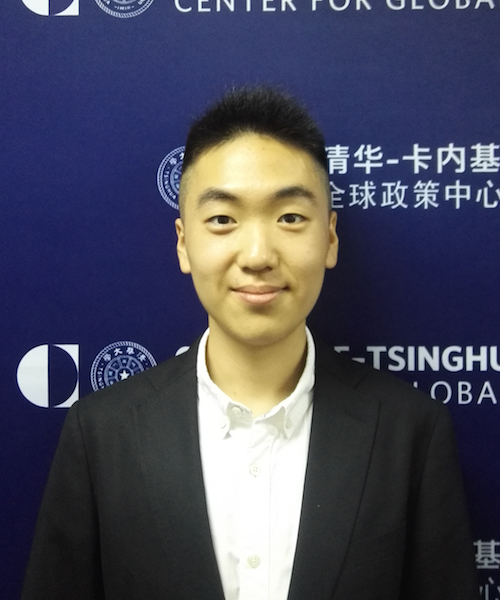
用数字时代的创新应对全球议题—对抗网络恐怖主义的案例
Chenyu Wu | 2018年6月3日
注:中英文网站上发表的学生日志均为英文。
Walk across a college campus in America, strike up a conversation with a stranger, and try asking to add them on Facebook. More often than not, you will be met with a confused face and an attempt to divert the conversation away from your new friend’s online world. Now, grab a seat next to a stranger in a Chinese dining hall, ask “Ni you mei you weixin?” and within seconds your phones will be scanning each other’s virtual identity. Suddenly, this stranger’s personal life, photos, friends, and memories are easily accessible. It is also worth noting that Beijing is tracking your new friendship.
Regarded as ‘The Chinese Facebook,” WeChat or weixin is an attempt to preserve the integrity of state-owned enterprises while competing against western innovation in the People’s Republic of China. Thanks to pesky firewalls and recent efforts to thwart VPN accessibility, the Chinese platform prevails across mainland China as the primary social media network. In an information age that is ever connected by technology and the internet, social media remains at the forefront of the exchange of ideas. Such an exchange typically precedes collaborative efforts towards innovation and development. Critical differences between Chinese and American social media platforms have undoubtedly hindered the ability of younger generations to maximize their cooperative potential via the internet.
Since its official ban in 2009, Facebook has made ‘no visible headway’ in connecting with China’s 700 million internet users. At the same time, few Westerners are tempted to deeply engage in WeChat given its candid honesty about how it discloses private user information for the sake of ‘conforming’ to government regulations. While recent Facebook scandals reveal personal information was never as secure as it seemed to be, it cannot compare to the utter lack of privacy between WeChat users and Beijing. The inability to find common ground in cyberspace on a wider scale deepens the divide between Americans and Chinese, whose younger generations are increasingly vested in their virtual lives.
Still, the Chinese-American population in the United States continues to increase. But the nearly 300,000 ‘sea turtles’ (Chinese exchange students) who move between institutions of higher education in the States and their homeland are often regarded with an air of suspicion, perceived as an extremity of Beijing’s influence. To a lesser degree, but increasingly common is a noteworthy portion of Americans touring, spending semesters in, and even moving to the once gated off Middle Kingdom. The in-person communication that accompanies these trends fosters cooperation that was once unprecedented. The baby boomer generation’s understanding of China was contained to what one could see and learn in the British territory of Hong Kong. Now, millennials have bountiful experiences abroad in remote regions of China, and even more have access to photos and videos that are abundant in the World Wide Web. Social media’s ability to consume the attention of millennials, however, means the lack of common space will continue to fog our understanding of each other’s culture and customs.
While WeChat permeates throughout Chinese society, particularly in the country’s many mega-cities, westerners like myself who download the app while abroad often leave it to collect virtual dust upon returning home. Instead, I opt for platforms that are available to a wider population. The ability to communicate in the 21st century persists, but the potential innovation that exists among Chinese and American youth remains untapped because of these rifts. Social integration promotes amiability, and in turn, a willingness to cooperate and progress together rather than as members of competitor nations. The distance felt between Americans and Chinese is no longer determined by physical geography but by cyberspace. A solution might lay in Chinese circumventing firewalls, Americans giving into the WeChat hype, or even a third party platform that invites a wider audience to the conversation regarding everything from pop culture to modern medicine. Regardless, until the digital age undergoes heightened unity, the ability of millennials and the rising generation X to combat global issues will remain hampered. I firmly believe that if we spend our younger years liking one another’s photos on Instagram or converse through WeChat, then as adults we will be more willing to invest in a mutually prosperous future.
Michael Mullaney is a junior at Georgetown University (C'19) majoring in government with minors in Spanish and Chinese.

Chenyu Wu | 2018年6月3日

Yunxin Wang | 2018年6月1日

Hongjin Xu | 2018年5月29日

Cynthia Wang | 2018年5月28日

Ruolin Zhao | 2018年5月27日

Yamillet Payano | 2018年5月24日

Jessie Dalman | 2018年5月23日

Haile Chen | 2018年5月22日